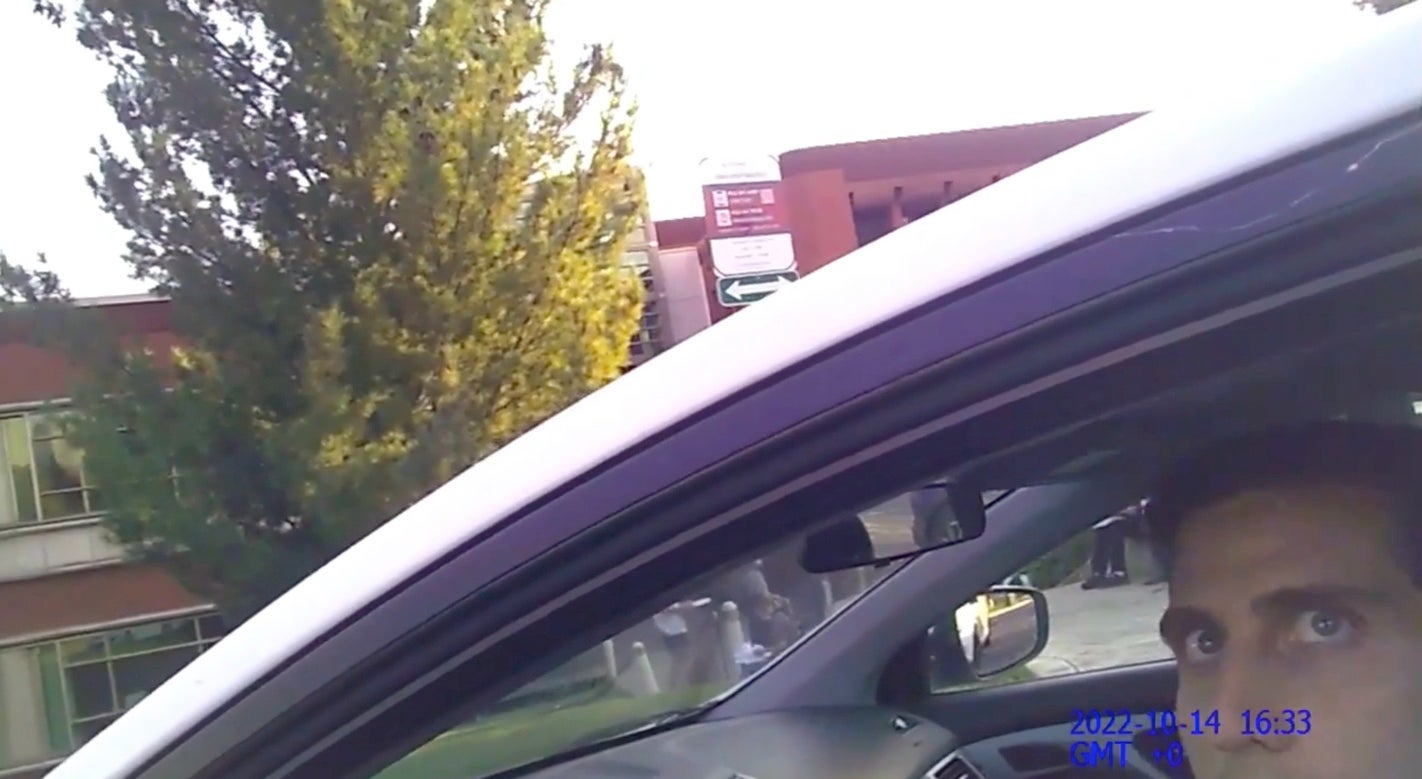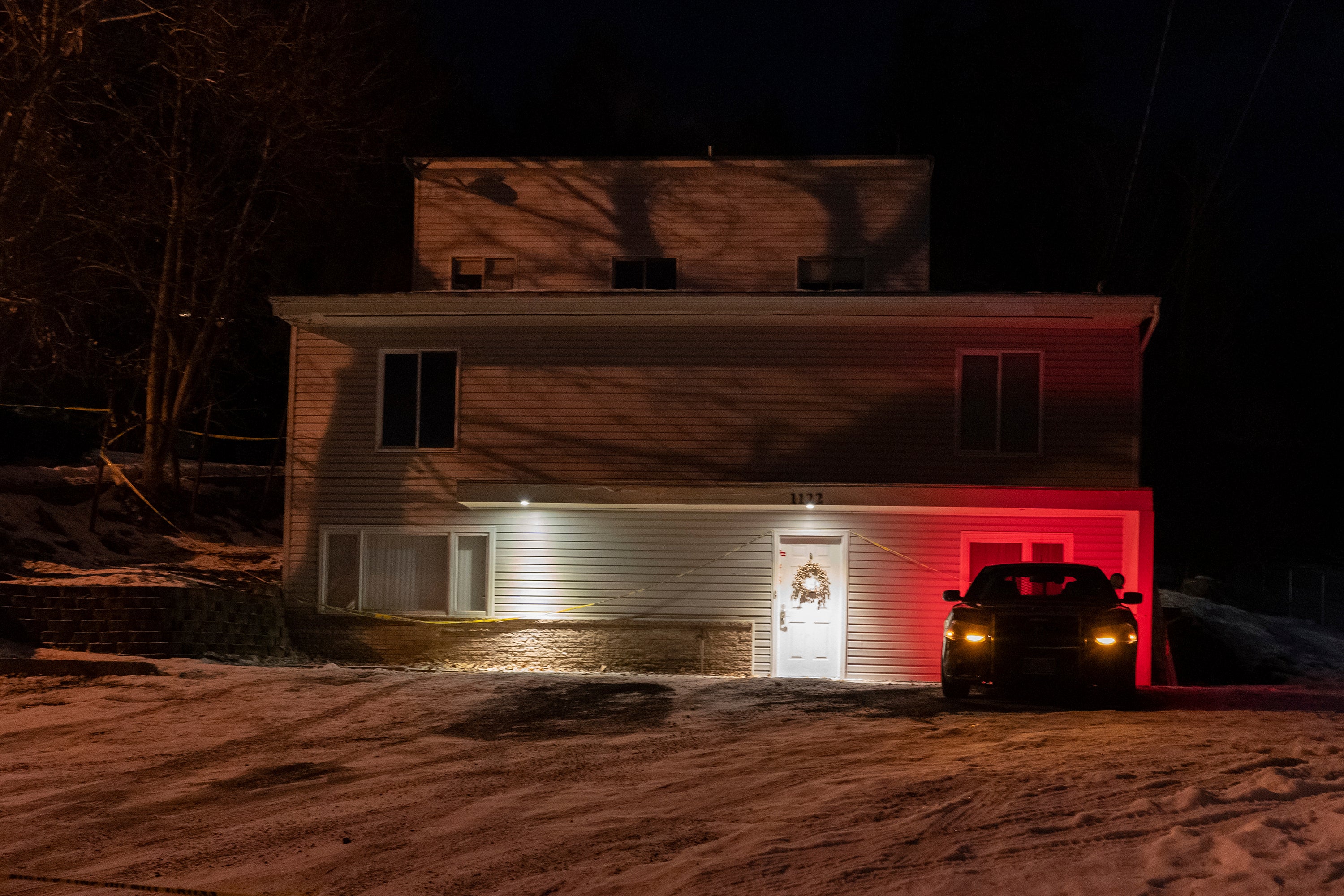Accused Idaho college killer Bryan Kohberger’s belongings test positive for blood
Newly-released bodycam footage also shows officers executing a search warrant at his home on 30 December
At least two items seized from the home of accused killer Bryan Kohberger tested positive for blood, it has been revealed.
Court documents, released by Washington authorities on Thursday, show that multiple items taken from the 28-year-old Washington State University criminology PhD student’s apartment in Pullman had been tested for the presence of blood.
While most items came back negative, two items were positive.
Those items were a mattress cover on the bed and an uncased pillow, both of which were described as having visible “reddish brown stains”. The documents do not reveal who the blood belongs to.
The items were all seized when police executed a search warrant at Mr Kohberger’s address on 30 December – the day that he was arrested for the murders of University of Idaho students Ethan Chapin, 20, Xana Kernodle, 20, Madison Mogen, 21, and Kaylee Goncalves, 21.
Investigators also seized other items such as possible human and animal hair strands, a disposable glove and a computer.
The murder weapon – a fixed-blade knife – was not recovered during the searches and it has still never been found.
However, the affidavit, released in January, revealed that Mr Kohberger’s DNA was found on a knife sheath left behind at the scene of the murders.
WSU police also released bodycam footage on Thursday of the search warrant being executed at the Pullman apartment.
The footage shows officers stating their presence outside the property and serving the warrant but does not capture the search once the officers enter.
Mr Kohberger was not present at the time as he had travelled cross-country with his father in the white Hyundai Elantra in mid-December to spend the holidays at his family home in Albrightsville, Pennsylvania.
Separate bodycam footage was also released showing Mr Kohberger being pulled over by police on 14 October – almost exactly one month to the day before the killings.

In the footage, he is seen going on the defence when a female officer approaches him in his white Hyundai Elantra – the same vehicle which was at the centre of a six-week manhunt to find the college killer.
She tells Mr Kohberger that she pulled him over for running a red light at the intersection.
The 28-year-old accused killer is somewhat argumentative, pushing back on the officer’s version of events and asking a series of questions about the “law” in Pennsylvania.
“What actually happened is I was stuck in the middle of the intersection,” he says.
“So I was forced to go to the left.”
The officer tells him that drivers are “not supposed to enter the intersection at all for that reason because if the light turns red, then you’re stuck in the intersection”.
Mr Kohberger tells the officer that he is not familiar with driving in Washington state as he is from a rural part of Pennsylvania and asks her to explain the rules to him.
“Can you explain that to me a little bit further?” he asks.
“So in Pennsylvania, when you’re stuck in an intersection, you have to make the left. What would the appropriate thing for me to have done been?”
The officer explains: “You’re not supposed to block an intersection like that in Washington.”

At the end of the minutes-long interaction, Mr Kohberger apologises for asking “too many questions”.
“I do apologise if I was asking you too many questions about the law,” he says.
The officer says she is letting him off with a warning.
Almost exactly one month later – on 13 November – Mr Kohberger allegedly murdered the four students.
The four victims were found stabbed to death in an off-campus home in Moscow, Idaho, that the three women shared with two surviving students.
Mr Kohberger was arrested at his parents’ home in Pennsylvania on 30 December and charged with their murders.
It is still unclear what connection the WSU PhD student had to the University of Idaho students – if any – prior to the horror attack.
As a criminal justice PhD student at WSU, Mr Kohberger lived just 15 minutes from the victims over the Idaho-Washington border in Pullman. He had moved there from Pennsylvania and began his studies there that summer, having just completed his first semester before his arrest.
Before this, he studied criminology at DeSales University – first as an undergraduate and then finishing his graduate studies in June 2022.
While there, he studied under renowned forensic psychologist Katherine Ramsland who interviewed the BTK serial killer and co-wrote the book Confession of a Serial Killer: The Untold Story of Dennis Rader, the BTK Killer with him.
He also carried out a research project “to understand how emotions and psychological traits influence decision-making when committing a crime”.
Now, the criminology PhD student is set to appear in Latah County Courthouse in Idaho for his preliminary hearing on 26 June.
He is facing life in prison or the death penalty for the murders that have rocked the small college town of Moscow and hit headlines around the globe.




